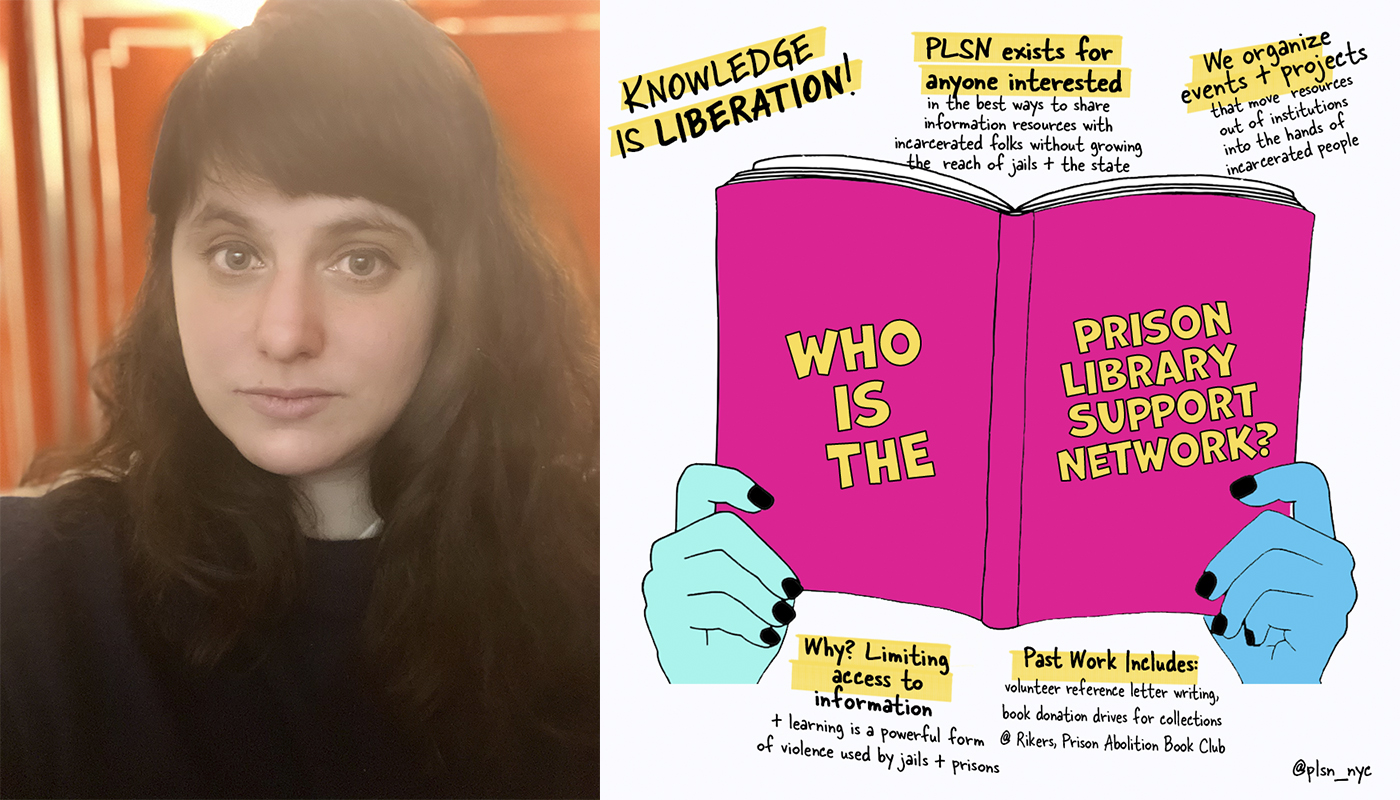
In celebration of Women’s History Month, Pratt is sharing the stories of women who are making history today by organizing in their local communities. Follow the Q&A series on the Pratt.edu news page and the @PrattInstitute Instagram for updates throughout March. This is the second in the series:
Mia Bruner, MLS ’18, is working to help incarcerated people stay connected to the world through access to knowledge and information. Her volunteer organization, the Prison Library Support Network (PLSN), is a collective of over 70 library professionals who partner with public libraries in the New York City area to support the needs of the local incarcerated population.
Why do you think creativity is important in your work?
I find myself faced with a lot of hopelessness when sitting with the violence of our world at present. Creativity—applied to community organizing in my case—is something I’ve found to respond to my hopelessness. It offers me action and not despair. This is important to me because, as a white, queer, disabled, Jewish librarian, I don’t feel like I can afford to get paralyzed in hopelessness while also working in solidarity with people facing more violent oppression than I could ever know.
Is there anything about your experience at Pratt that influences your work?
The community at Pratt has been profoundly influential in my work. First, there is the faculty, for example, Dr. Debbie Rabina’s reference class was my introduction to providing reference services to incarcerated people. Reference has become the backbone of what the Prison Library Support Network does.
But also the students. I found my community of peers at Pratt to be a critical resource for my work. PLSN has always had a considerable number of Pratt students and alumni as active members who are just as responsible for the collective’s success as I am.
What advice would you give to someone who wants to get involved in grassroots efforts and organizing in their communities?
Dedicate yourself to listening—this can look like reading everything you can about the history of a particular place or quietly attending organizing meetings to learn about work going on in your community. Understand your power and the material resources you have access to; stay committed to giving those up whenever you can. Respect and seek out bodies of collective knowledge that live outside of institutions. These are invaluable resources.
For more of the Pratt Women Organizing for Change series, see the previous Q&A with NYC Councilmember Laurie A. Cumbo.